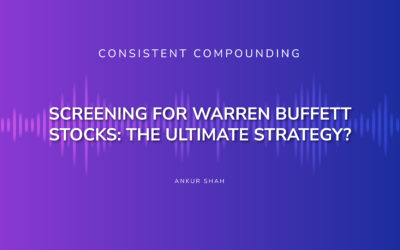As a subscriber to my email list, my goal is to provide you with added value over and above what I publish publicly on social media. Thus, this week I want to discuss an interesting stock that Morningstar classifies as having a wide moat and is significantly undervalued. Generally, high-quality companies trade at relatively expensive multiples. If you find a high-quality business trading at an exceptional value, it has more than likely stumbled in some material way. Maybe the company reported a bad quarter or there was a judgment against the company. Either way, it’s up to you to decide whether the underlying franchise is compromised and whether the buying opportunity truly exists or is a reflection of a new more negative reality.
Check out – Open Interest for Intraday Trading?
Charles Schwab (SCHW) became a victim of the recent turmoil in the regional banking sector. The Charles Schwab Corporation is technically a savings and loan holding company that operates in the following segments:
- Wealth Management
- Securities Brokerage
- Banking
- Asset Management
- Custody
- Financial Advisory Services
Unlike Silicon Valley Bank, SCHW is primarily a brokerage and wealth management firm. At the end of FY22, Schwab had $7.05 trillion in assets, 33.8 million active brokerage accounts, 2.4 million retirement plan participants, and 1.7 million banking clients. Unfortunately, the main similarity that SCHW has to SVB is that it also has large unrealized losses in its fixed income held-to-maturity securities portfolio.
Approximately 50% of total revenue is derived from net interest income. Essentially, Schwab invests the cash balances held by its clients in their brokerage accounts and earns a spread. The other 50% of revenue comes from asset management and trading fees.
The bank reported total shareholders’ equity of $27 b at the end of Q1 2023, which superficially appears impressive. However, if we subtract goodwill, tangible common equity was $8.2 b. Tangible common equity is the sliver of capital that must absorb all losses on a bank’s balance sheet.
Read more – Invest in Nasdaq From India in 2023
Thus, investors were concerned that the total mark-to-market losses on the company’s held-to-maturity portfolio were $13.6 b at the end of Q1 2023. If Schwab had to realize the losses, it would effectively wipe out their capital. This scenario is highly unlikely in my view and provides us with an interesting opportunity in the stock.
There is a little-known accounting rule that states banks don’t have to run mark-to-market losses on securities through the income statement as long as they are classified as held-to-maturity. However, a bank must record the losses if they are forced to sell held-to-maturity securities to satisfy deposit withdrawal requests. SVB failed because its depositors fled and the Fed failed to provide additional liquidity. Basically, there are two ways a bank can fail. A bank can fail due to a run on deposits or through significant credit losses from its loan portfolio.
In my view, Schwab is not susceptible to a run on deposits and isn’t facing significant credit losses. In terms of liquidity, Schwab can now avail up to $200 b in cash through the Federal Reserve’s Bank Term Funding Program, which was a direct response to SVB’s failure. Furthermore, Schwab’s balance sheet consists primarily of high-quality assets including US Treasuries and agency mortgage-backed securities. Thus, there is a minimal likelihood of credit losses severely impacting the company’s balance sheet. Finally, even if rates stay at current levels most of the unrealized losses will reduce to $0 as the fixed-income securities mature due to amortization.
The shares are currently trading at a 13.6x forward P/E multiple, which is significantly below the company’s historical 27x forward P/E multiple. I think there is significant upside here and am long the stock. If the shares return to their historical multiple by the end of 2024, there is 112% absolute upside potential or 58% annualized. I’m also repeating the standard disclosure that I’m not a financial advisor and I’m only providing this info for educational purposes. Do your own research and make your own call.
Guide – Career In Stock Market
In last week’s post, I mentioned the “one job” of an analyst that if done correctly virtually guarantees your success as an investor. I’ll plan on elaborating in next week’s email.
Disclosure Statement
I am long SCHW. This means that I own shares of this stock and I expect the price to go up in the future.
I am not a financial advisor and I am not providing financial advice. The information I provide about stocks is for educational purposes only and should not be construed as investment advice. You should always do your own research before making any investment decisions.
I am not affiliated with any particular stock or investment firm. I do not receive any compensation for providing this information.
The information I provide is based on my own research and analysis, which may be incomplete or inaccurate. I make no representations or warranties about the accuracy or completeness of the information I provide.
You should not rely on the information I provide to make any investment decisions. You should always consult with a qualified financial advisor before making any investment decisions.




